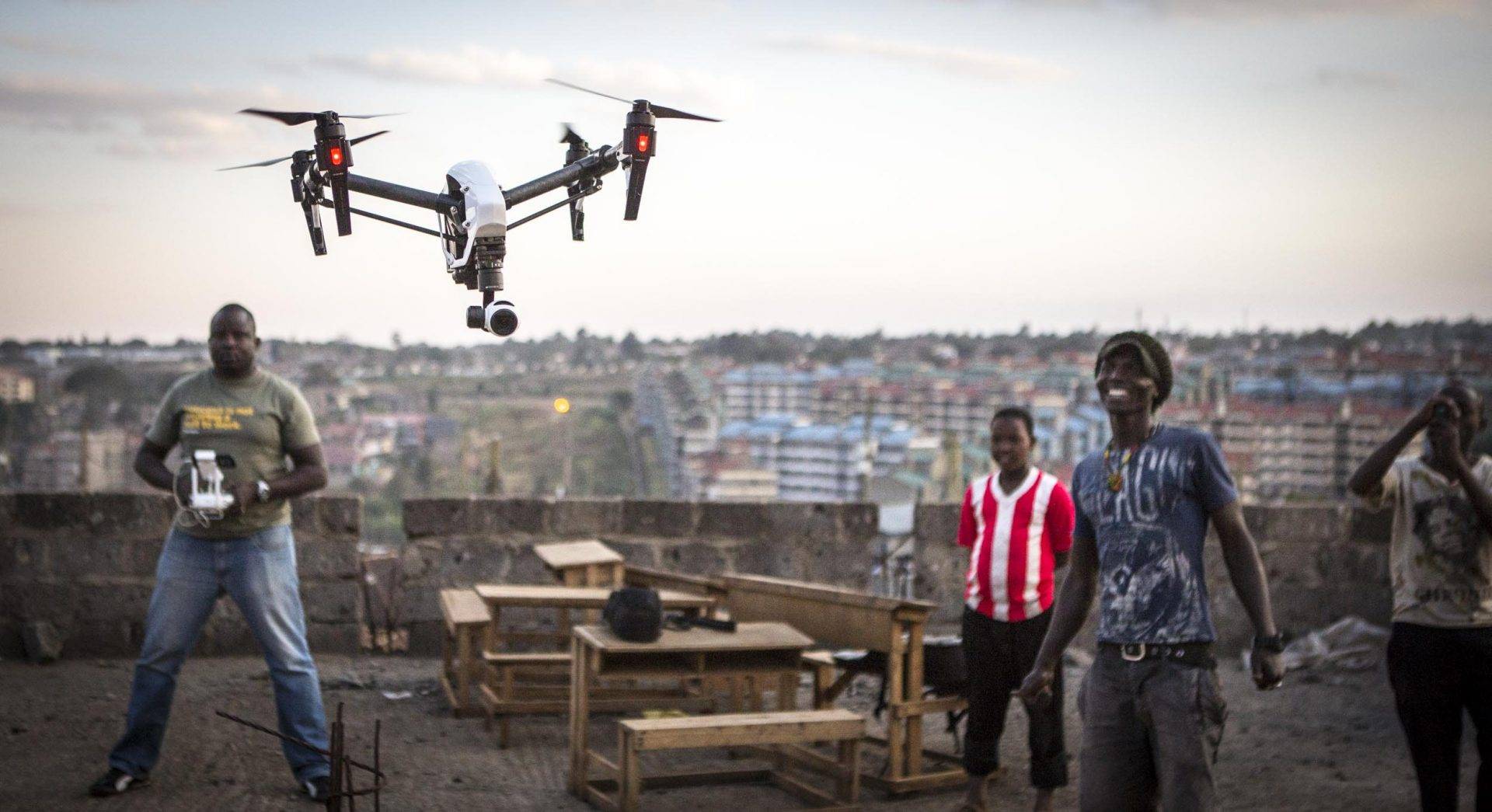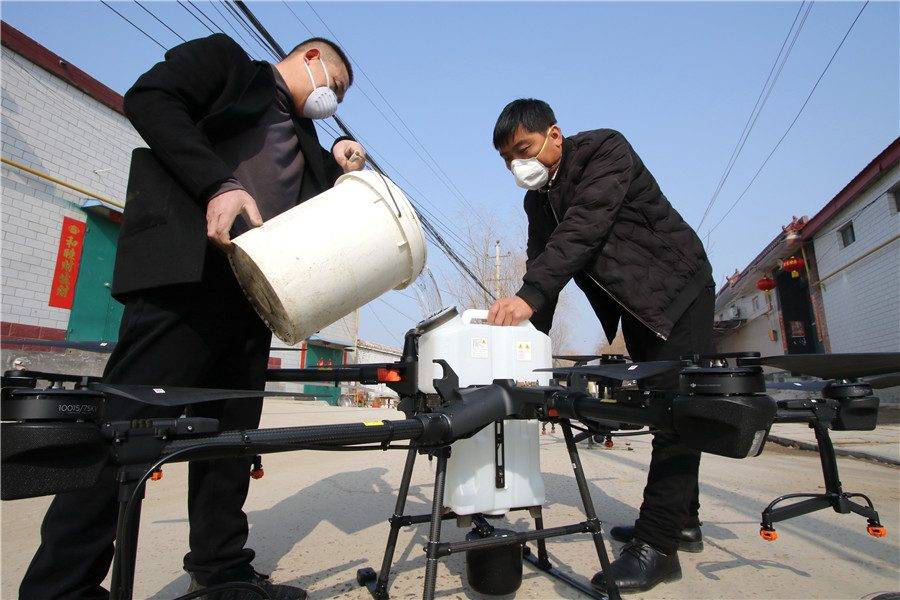Africa Now Needs To Become More Serious About Drone Use & Regulation

Kenya just effectively lifted its drone ban, allowing Kenyans above the age of 18 to own the unmanned aircraft vehicles (UAV). Known as the Civil Aviation (Unmanned Aircraft Systems) Regulations 2019 Act, the approval comes at a very significant time.
Partial and complete lockdowns are all over the continent as no less than 100 countries of the world resort to confinement measures to curb the spread of the novel coronavirus. Such a time has shed the spotlight on the capacity of drones.
First, China
Coronavirus began in Wuhan, the capital city of Hubei province in the People’s Republic of China. At first, the outbreak was not enough reason to institute a lockdown. But desperate times, indeed, called for desperate measures.
In partnership with agritech think tanks, a Chinese tech firm known as DJI pledged some USD 1.5 Mn to help contain the spread of the pandemic. Of its measures, the most sophisticated was the use of drones to spray disinfectant in the potentially affected areas in Wuhan.

China has effective laws in place to control the use of drones in the country. Flying one in the country is legal, according to Civil Aviation Administration Of China. However, rules apply, such as not flying the devices in densely populated areas and registering 250-gram drones with the CCAA.
Drones proved their capability to up efforts against China’s coronavirus battle by covering more ground and reducing workers’ exposure to affected zones. DJI was able to disinfect more than 3 million sqm in Shenzhen, one of the five largest cities in China.
Provably 50 times faster and more efficient than traditional methods, drones have so far been able to cover 600 million sqm across China. With this, it’s no surprise that what was once the epicenter of coronavirus now has less than 2,000 active cases—though other efforts played their parts.
Social Distancing
The drone industry, as of now, is experiencing what one may call an emergency ballooning. One proof is the increase in demand recorded by Alphabet’s drone delivery company, Wing. In recent weeks, sales have significantly climbed as people adhere to social distancing rules during the pandemic.
Wing claims to have made more than 1,000 deliveries in the past 2 weeks, while recording doublings in places like Australia and the United States—2 places with no-nonsense COVID-19 lockdowns. With drones than can travel at round 65 mph, Wing has been able to effectively service people who order items online.
As a result of the coronavirus epidemic, what is now called “a world first”, Manna Aero, was born. The drone delivery startup has started delivering medicine to vulnerable people locked in their homes in Moneygall, Ireland.
Manna received authorization from the Irish Aviation Authority and started operations last Friday (April 3rd). The pilot, if successful, would be expanded throughout Ireland with the possibility of adding food deliveries. All this is possible because Ireland is another place where drone use is effectively regulated.
The use of drone delivery now proves to be an efficient solution to the problems offered up by the novel virus and its resulting lockdowns. In spite of limited movement, people at home need medicine and food. Only that, going outside brings the risk of infection and transmission.
Into Africa
Even though drones have been around for quite some time, the technology is only now being answered as a real need or demand. Kenya appears to have recognized this need, because the time of its drone approval is quite interesting.
Recall that last month, the Kenyan government finally gave Google the go-ahead to deploy its Loon project, to use balloons to boost internet connection for those working from home due to COVID-19.
The larger problem, however, is that Africa is an epicenter of drone uncertainty. While the device’s industry in the continent remains somewhat vague, 5 countries in the region effectively still prohibit the use of drones.
Nevertheless, startups such as LifeBank and Zipline find a way to operate in more relaxed countries like Rwanda, Namibia and South Africa—the only places in Africa where drone laws are clear-cut and robust.
The African countries that do not have clear drone rules are avoiding troubles altogether by simply banning the technology until proper legislation is in place. As such, they’re neglecting diverse use cases across key sectors like logistics, health and agriculture.
In Nigeria, for example, getting a drone license is deemed Herculean, even as the Nigerian Civil Aviation Authority (NCAA) placed a ban on unauthorised drones within the Nigerian airspace.
The ‘Corona’ Effect
As some parts of the world turn to drone use to combat coronavirus, Africa is seemingly left out. However, South African drone firm Step Above has used these devices to capture Cape Town’s current dead quiet state during lockdown.
That’s because its Remote Operator Certificate allows its to legally operate drones in controlled airspace, over people and crowds, near national key-points, at night, over national roads, and within SanParks.
Step Above is also listed as an ‘essential service’ and acquired the necessary permits from the Department of Transport and the South African Civil Aviation Authority to use drones during the lockdown.
The use of drones to monitor the movement of people during a lockdown may contravene privacy laws, but that is hardly the concern in Africa as of now. Drone-related operations appear to have been silenced in the midst of crisis, when in fact, the reverse should be the case.
Tunisia is using drone-equipped patrol to ensure people are kept off the streets, even though the device is banned in the North African country. While that sends mixed signals, it also points to the possibility of revising drone laws to make life easier during the coronavirus pandemic.
If the COVID-19 brings good, one of such should be the realization that drones can be lifesavers. There’s no better time than now for Sub-Saharan Africa to fix its complicated relationship with unmanned aircraft vehicles.
Masks and gloves? How about flying a drone?
Featured Image: Square Space